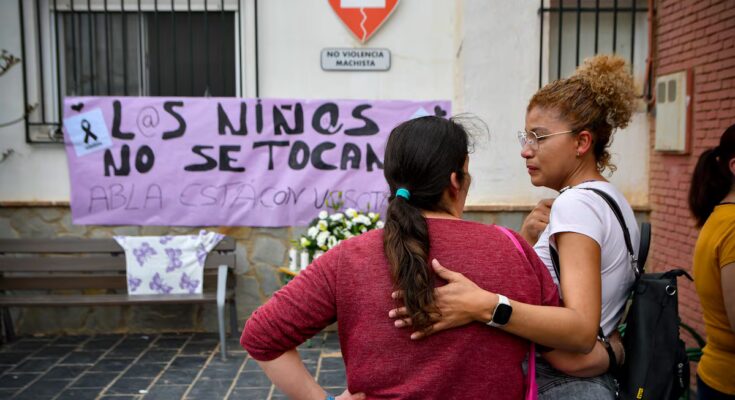This Wednesday, the Economic and Social Council (ESC) published its opinion on the draft law on indirect violence, with a “generally positive assessment” but warning about the contradictions of the text and the lack of allocated budget. This law will classify as a specific crime for the first time violence committed by couples or ex-partners to “cause pain or suffering to women” on their children, minors under their care, ascendants, siblings or spouse.
The ESC’s analysis is not binding, but comments from these advisory bodies usually lead to changes in the parliamentary drafting process, such as the one currently in place for regulations, the preliminary draft of which has been approved by the Council of Ministers. The body emphasizes that indirect violence is recognized and sanctioned as “a specific and extreme manifestation of gender violence”, in which the aggressor uses children or people close to the victim as tools to cause harm.
The ESC criticizes the fact that “the complexity and gradual nature of indirect violence would require a comprehensive treatment which the text fails to provide”. He argues that, thus formulated, “it could leave some victims included in the definition of indirect violence, such as ascendants, siblings or spouses, outside the scope of protection measures and rights”. The opinion also warns about the “lack of coherence of some sections with the proposed reform” and recommends “harmonizing” the wording of the text.
The entity regrets that a deployment of resources will be required and that a “zero” budgetary impact has been estimated. It is stated that the effectiveness of the envisaged measures, such as the Awareness Plan, the training of justice professionals or the strengthening of violence against women in courts, will require the mobilization of economic resources. The report warns that “these phenomena generate significant economic and social costs” and refers to international models such as the Barnahus (Icelandic children’s home), where all departments involved in a case of child sexual abuse coordinate and work under one roof to care for the child in a friendly environment, away from police stations and hospitals.
In another comment, the CES highlights that, by affecting sectors such as immigration or the protection of Spaniards abroad, where specific measures against gender violence already exist, the future law could contravene other regulations. He recommends asking specialists for their opinion on this point.
As a strong point, the organization highlights that “the standard covers some legal gaps”. He explains that, until now, there had been an absence of regulations “has hindered” measures aimed at combating this type of violence and has given rise to “unequal responses in the judicial and administrative fields, based fundamentally on jurisprudential criteria”. The opinion underlines the specific criminal qualification of these behaviors, the “limitation of the damage inflicted on people close to the victim to maximize suffering” and the proposal for “strengthening the training of justice professionals and improving procedures for the defense of victims”.
The Ministry of Equal Opportunities brought it at the end of September for the parliamentary process Draft organic law on measures regarding indirect violence. The text qualifies indirect violence as a specific crime in the Criminal Code through the new article 173 bis, with additional prison sentences and prohibitions. It also provides for a new sanction that prevents convicted persons from spreading content relating to the crime. Furthermore, it introduces changes to the civil code so that minors are mandatorily heard in custody and visitation proceedings and incorporates a gender and childhood perspective into judicial training.
The bill provides for specific statistics of victims due to gender violence that includes these cases and expands mandatory training on indirect violence for judicial workers, security forces and forensic personnel.
On 16 October, Equality asked the CES to express an opinion on the document within a month. The request was transferred to the Working Commission on Social Reality and Women’s Work in Spain, which met twice to address its implementation.



